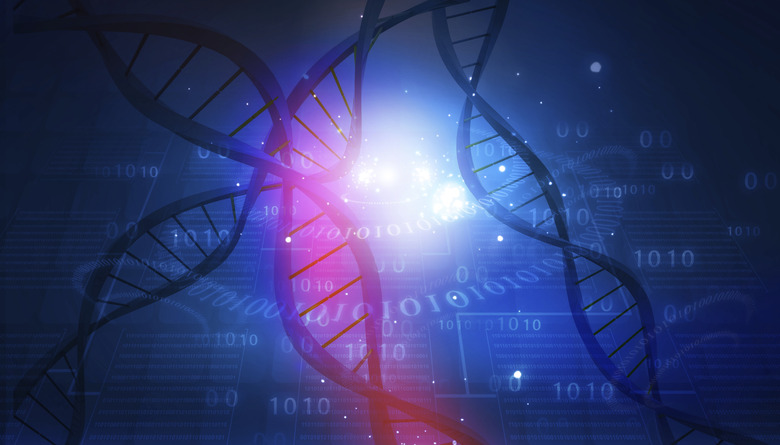How Many Chromosomes Are Found In Human Body Cells?
Chromosomes are long threads of deoxyribonucleic acid, or DNA, found in the nuclei of animal and plant cells. DNA in turn is the genetic information for making new copies of an organism or part of one. Different organisms have different numbers of chromosomes; humans have 23 pairs.
Chromosomes and Inheritance
Chromosomes and Inheritance
You get one copy of each paired chromosome from each parent. This explains why you're said to "get" traits like your mother's green eyes or your father's dark hair — the copy of a gene, or part of a DNA strand, for a given trait on one chromosome in a pair is often said to be dominant over that in the other.
Sex Chromosomes vs. Autosomes
Sex Chromosomes vs. Autosomes
Genetically normal people have one pair of sex chromosomes and 22 "everyday" pairs, called autosomes. If you are male, you have one X chromosome, which always comes from your mother, and one Y chromosome, which can only come from your father; if you're female, you have two X chromosomes. The other 22 chromosome pairs correspond to each other regardless of your sex.
Comparisons to Other Animals
Comparisons to Other Animals
More complex organisms tend to have more genetic material and therefore more chromosomes. A fruit fly, for example, has four pairs, a rice plant 12. A dog has 39. With extremely rare exceptions, animals with a different number of chromosomes cannot have offspring, so chromosome number is one determinant of a "species."
Cite This Article
MLA
Crystal, Mike. "How Many Chromosomes Are Found In Human Body Cells?" sciencing.com, https://www.sciencing.com/many-found-human-body-cells-5207244/. 24 April 2017.
APA
Crystal, Mike. (2017, April 24). How Many Chromosomes Are Found In Human Body Cells?. sciencing.com. Retrieved from https://www.sciencing.com/many-found-human-body-cells-5207244/
Chicago
Crystal, Mike. How Many Chromosomes Are Found In Human Body Cells? last modified August 30, 2022. https://www.sciencing.com/many-found-human-body-cells-5207244/
